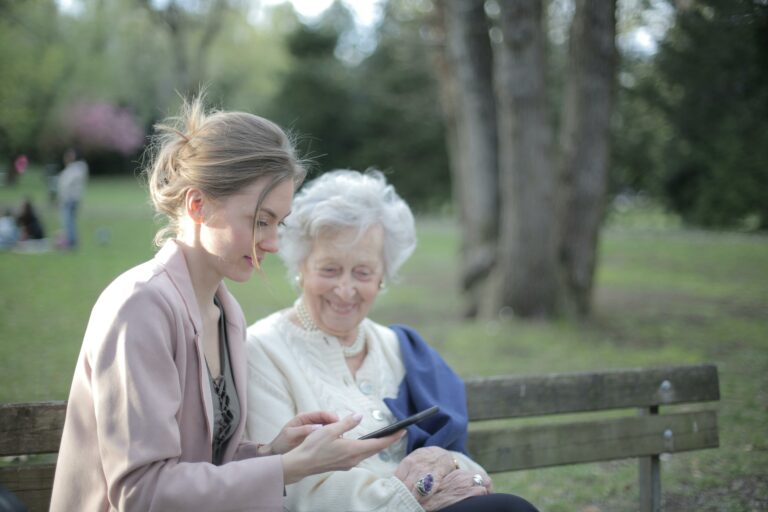
Can I Get Paid as a Caregiver for Mom?
Caring for an aging parent is one of the most rewarding yet challenging responsibilities a person can take on. However, it may require reducing your commitment to other work. Learning how to get paid as your mother’s caregiver is often essential to making the arrangement work.
What are Your Mother’s Needs?
The first step is understanding the level of care that your mother requires. Does she need help with daily activities like cooking, bathing and dressing, or are her needs more medical in nature? Creating a plan based on her specific needs will help you understand what you can do yourself and what might require outside help.
Some helpful questions to ask yourself:
- How much time can I realistically commit to her care?
- Are there tasks I may need help with, such as managing medications or mobility assistance?
Answering these questions will give you a clear idea of what kind of care is necessary and where to seek help.
Can You Get Paid to Be a Senior Caregiver?
While caring for a parent can be emotionally fulfilling, it can also become financially challenging, especially if you are sacrificing work hours to take on caregiving responsibilities.
In some cases, yes, you can be paid as a family caregiver. Certain state and federal programs offer financial support to people caring for an aging parent, according to Elder Law Answers.
Do Medicaid Benefits Pay Family Caregivers?
Medicaid offers programs in all 50 states that allow families to direct their own care services. This means your mother may be able to choose you as her caregiver instead of hiring an outside agency. The details of these programs vary from state to state, so it’s essential to contact your state Medicaid office to find out what’s available where you live.
For example, in some states, Medicaid offers waivers that allow family caregivers to be compensated. These programs may also have income and asset limits, so ensuring that your mother meets the qualifications is important.
How Can Veterans Benefits Help?
If your mother or father is a veteran, you might be eligible for additional support through the Department of Veterans Affairs (VA). Programs like the Aid and Attendance (A&A) benefit provide financial assistance for caregiving. Veterans or their surviving spouses who meet certain qualifications can receive payments to cover caregiving costs.
Can You Get Paid as a Caregiver for Your Mom?
Being a caregiver for your mom can be both rewarding and overwhelming. Luckily, some options may provide financial relief. According to AARP, family caregivers often incur out-of-pocket costs that add up to thousands of dollars per year, leading many to seek compensation for their efforts. Programs such as Medicaid’s self-directed services allow qualified individuals to hire family members as caregivers.
How Do You Apply for Caregiver Support?
Once you’ve identified potential programs that may pay you as a caregiver, the next step is applying. Each program will have specific requirements and application procedures. Here’s what you need to do:
- Assess your mother’s needs: This may include an official assessment from a healthcare provider to determine the level of care required.
- Gather documentation: Depending on the program, you might need medical records, proof of income and other documents.
- Contact your local Area Agency on Aging: These organizations provide valuable resources, including information on available support programs in your area.
- Apply to the appropriate program: Once you’ve gathered all necessary paperwork, submit your application and follow up on its status.
Should You Hire an Elder Law Attorney?
Medicaid, veterans’ benefits and other state programs are individually complex; together, they seem impenetrable. However, you don’t need to figure it out on your own. An elder law attorney can help you understand your rights and guide you through the application process.
Request a Consultation to Get Started
If you are ready to explore becoming a caregiver for your mom, understanding all your options, including financial support, is essential. Contact us today to schedule a consultation with an elder law attorney. We can help you create a plan that protects your mom’s health and your family’s financial well-being.
Key Takeaways:
- Understand caregiving needs: Assess your mom’s situation to determine the level of care she requires.
- Explore financial options: Medicaid and veterans’ programs may offer compensation for family caregivers.
- Apply for assistance: Follow the steps to qualify for state and federal support programs.
- Seek legal guidance: Consulting an elder law attorney ensures that your caregiving plan is sound and compliant with regulations.
- Plan: Regularly review and adjust your caregiving approach as your mom’s needs evolve.
References: Elder Law Answers (Sept. 5, 2024) “Where Do I Start to Become a Caregiver for My Widowed Mom?” and AARP (Oct. 15, 2021) “Can I Get Paid to Be a Caregiver for a Family Member?“









